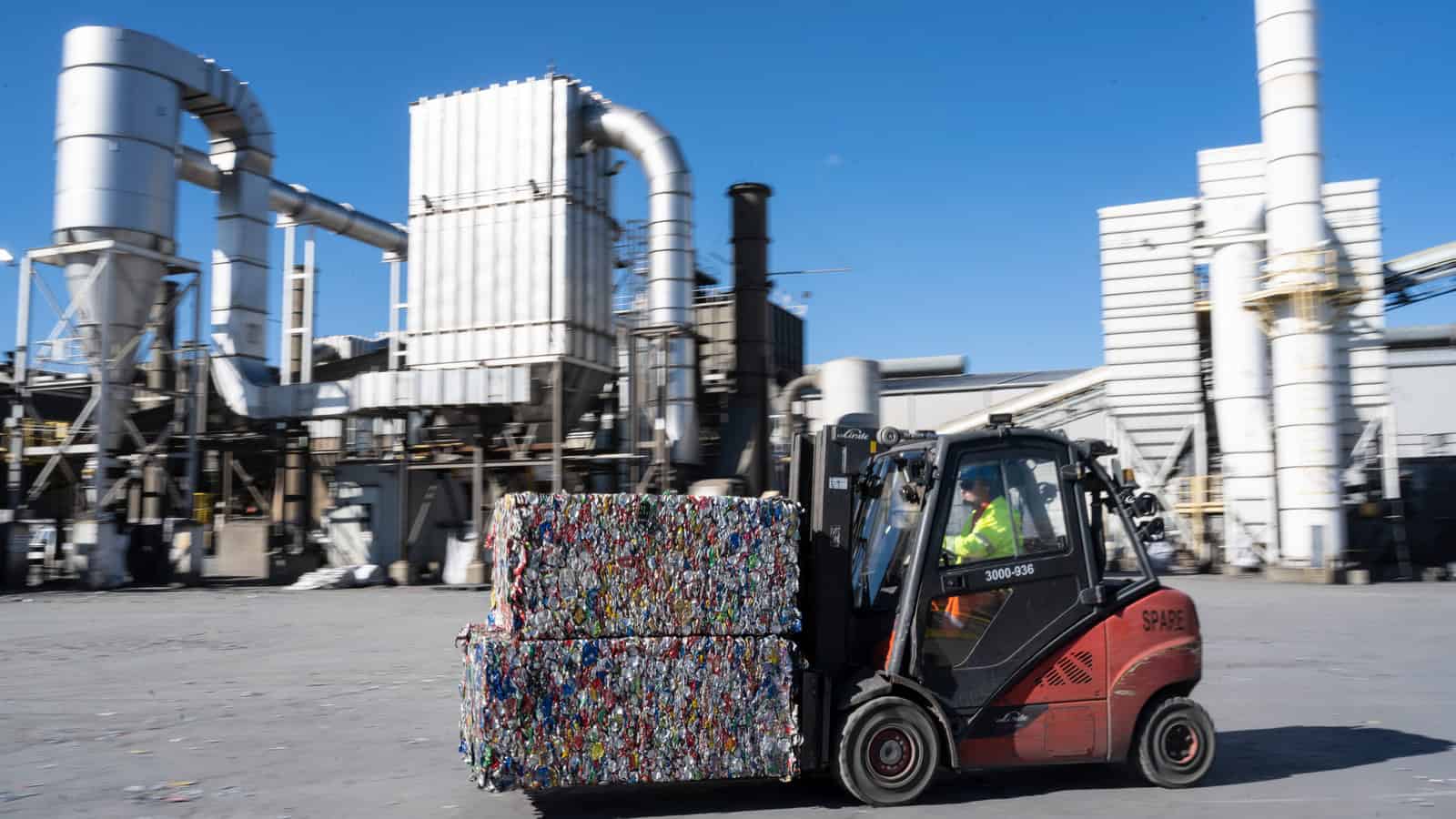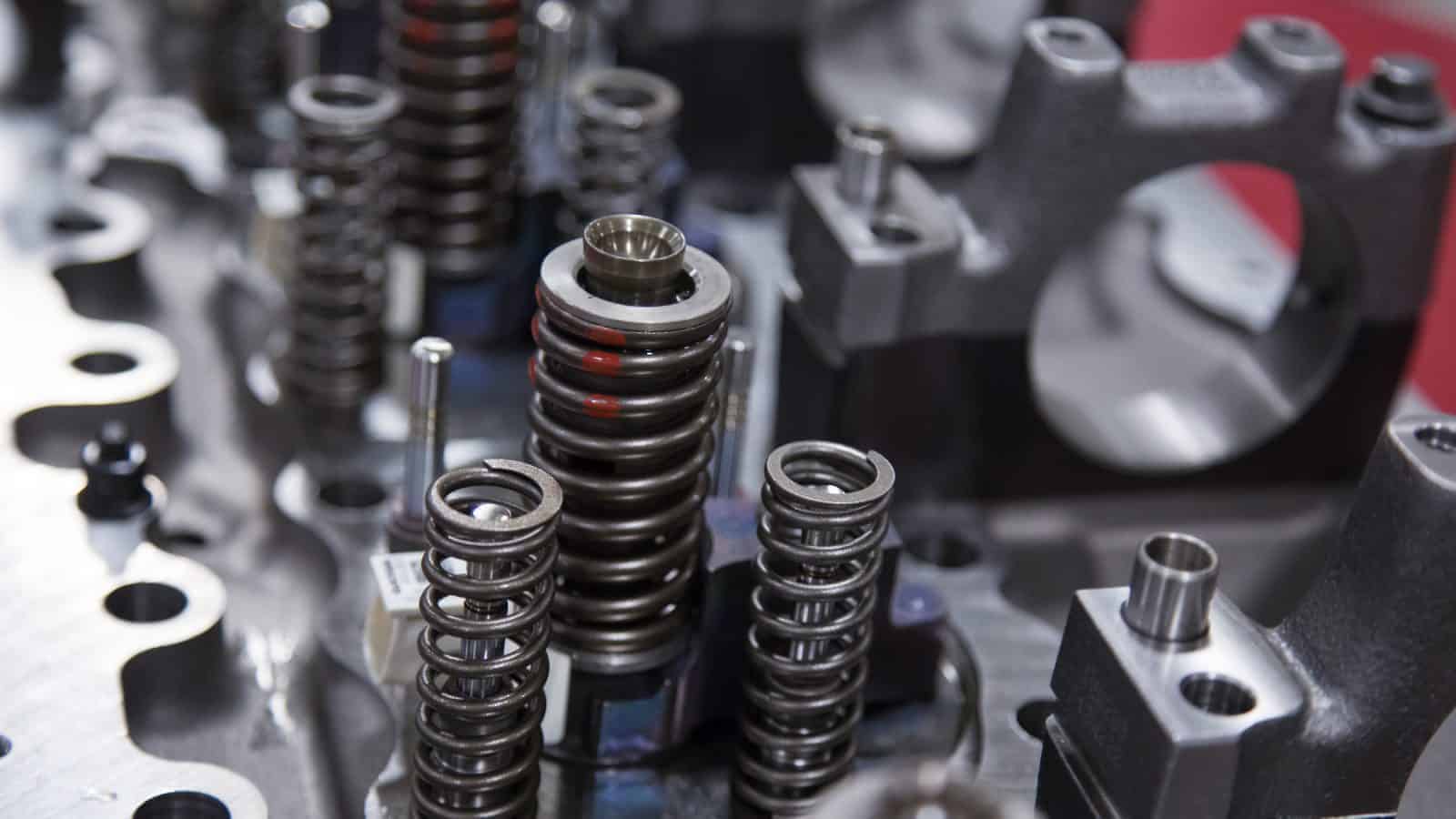Why Constellium Recycles Cans—and You Should, Too

If you’re finished with that soda, Constellium hopes you’ll throw the can in the nearest recycling bin.
Use and reuse: Used cans are the mainstay of the global aluminum manufacturer and recycling giant, which owns and operates one of the world’s largest used beverage can (UBC) plants, in Muscle Shoals, Alabama. There the company recycles the equivalent of more than 20 billion cans every year.
- “We shred the cans, remove the inks and coatings and then remelt that into aluminum we can use,” said Constellium Vice President of Strategy and Business Planning for Packaging and Automotive Rolled Products Raphael Thevenin. “It’s a very circular way of using the material. Within 60 days, it’s back on the shelf” as new cans.
- Using UBCs to make new cans consumes 95% less energy than using new aluminum and is a key piece of the entire aluminum production supply chain.
Many uses: Aluminum can be recycled almost infinitely, a characteristic that gives the metal a wide variety of applications in manufacturing, as does its light weight and durability.
- In addition to canstock, Constellium’s aluminum products include auto rolled and structural products used for vehicle hoods, doors, battery enclosures and bumpers, as well as aerospace solutions, armored products for the defense industry and much more.
Why cans? UBCs are “so widely available in the U.S., and we have such a strong network of traders that we’re able to recycle them in large volumes,” Thevenin continued, adding that 10 American states give cash deposits on beverage containers. (This means that consumers can redeem their empties for cash, currently an average of 5 cents a pounds for aluminum cans.)
- However, while the U.S. consumer recycling rate for UBCs is generally higher in states with deposits, it’s on the decline nationwide, having fallen to 43% in 2023 from 45% in 2020.
- “We’re seeing a million tons of aluminum landfilled in the U.S. every year,” according to Thevenin.
What they’re doing: The increasing number of UBCs consigned to the trash means “the availability of scrap metal is declining,” Thevenin continued.
- In an effort to reverse the trend, Constellium is assessing the possibility of pushing for greater collection efforts in areas where UBC recycling is low, urging states with deposits to offer more money for exchanges and advocating the construction of more UBC-recycling infrastructure throughout the U.S.
Why it’s important: For the sake of both cost and sustainability, the U.S. must increase its stock of available aluminum scrap, Thevenin said.
- “Because we don’t have the [widespread] infrastructure in place, a lot of scrap is exported outside the U.S.,” he told us. “But if we want to make sure the products we put on the market are sustainable and profitable, we have to use as much recycled material as possible.”
- Europe recycles about 75% of its UBCs and is set to recycle about 90% by the end of the decade, according to Thevenin. “There’s a huge need to reduce the gap between the U.S. and Europe.”
- To that end, Constellium has undertaken a campaign to educate lawmakers on the need to build out U.S. infrastructure. “We need to make sure legislators are aware,” said Thevenin. “They need to understand the importance of keeping more scrap metal at home.”
Recycling cars: In Europe and North America, Constellium is actively investigating new ways to recycle aluminum from old cars efficiently, either through sorting or dismantling.
- “It’s about a 10-to-15-year cycle for car recycling, meaning that the metal comes back in the form of a new car all those years after” the initial recycling, Thevenin said. “Today the most economical way to get scrap from a car is to shred it, so you get a mix of materials and have to sort plastics, glass, metals, then nonferrous metals and steel. We’re working on developing new alloys that are more scrap tolerant and testing them on the market.”
- Constellium is also collaborating with manufacturers on creating a laser/X-ray machine that will be able to sort the different alloys in recycled cars, easing and speeding the recycling process.
- In the longer term, the company hopes to work with automotive makers to standardize the alloys used in vehicles because “when it’s mixed, it’s more difficult to sort.”
The bottom line: Aluminum recycling is a no-brainer because it’s a win for consumers, manufacturers, retailers and the environment, Thevenin went on.
- For example, once a UBC collection plant “is operational, it’s self-sustaining because [the operator] can sell to companies, such as Constellium, and then invest that revenue on more and better infrastructure.”
- When it comes to vehicles, “when car makers develop a new model, they should make sure it’s easy to recycle” because doing so will mean both cost savings and “being able to offer consumers lower-carbon products.”
